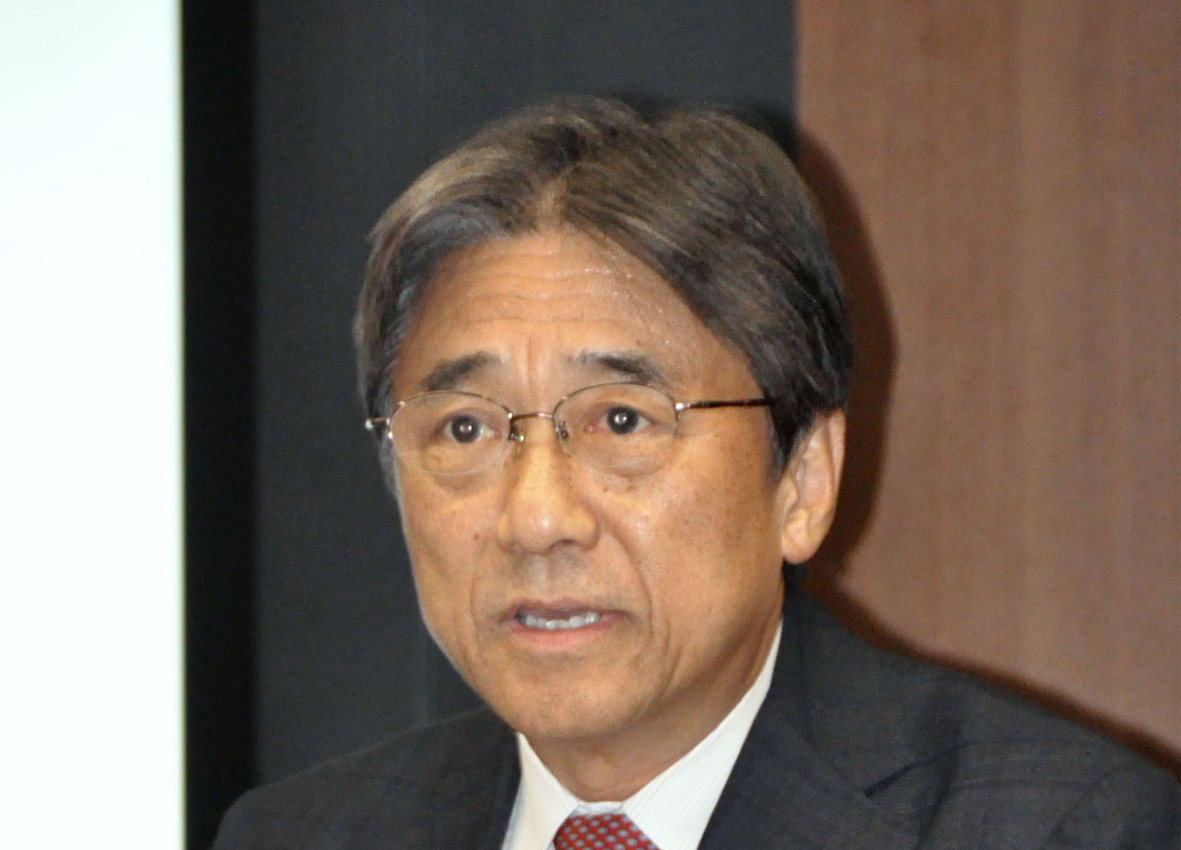
NTT Docomo to lower mobile phone fees by up to 40% from June
TOKYO -- NTT Docomo Inc. said Monday it will cut its mobile phone charges by up to 40 percent from June amid the government's call on telecom carriers to lower service fees.
NTT Docomo will introduce two basic service charge plans with a monthly fee of 5,980 yen ($53) for an unlimited data service and 1,980 yen for those who need less volume of data.
The major mobile phone company is looking to counter low-cost wireless service providers UQ Mobile and Y!mobile brands launched by domestic rivals KDDI Corp. and SoftBank Corp. respectively. NTT Docomo does not have a budget service brand.
The company will offer simpler plans by separating charges for handsets and services, as major wireless carriers in Japan are often criticized for their complicated plans which make it difficult to compare fees with those of other carriers and discourage carriers from cutting charges.
The issue came under the spotlight last year when Chief Cabinet Secretary Yoshihide Suga urged mobile phone service operators to cut fees, as the rates are higher than those in other countries and the three major cellphone companies generally log higher profit margins than those in other industries. Suga declined to comment Monday on NTT Docomo's new service fees.
"We will introduce simpler and more reasonable service fee plans after receiving many voices that they have been complicated and difficult to understand," NTT Docomo President Kazuhiro Yoshizawa said at a press conference in Tokyo.
The introduction of the new service charges will reduce the company's income by as much as 400 billion yen per year, Yoshizawa said.
"I recognized some moves (within the government) but we decided to launch the new fee plans to become the leader in the mobile phone market," he said.
Japan's mobile fees are relatively high. It costs about 7,000 yen a month to use 20 gigabytes in Tokyo, the most among comparable cities including New York, London and Seoul, according to data from the Ministry of Internal Affairs and Communications.
Japan's mobile phone market has long been dominated by the top three carriers, which together control nearly 90 percent of the market.
In April last year, the government granted approval to e-commerce giant Rakuten Inc. to enter the business from October this year, a move expected to spur greater competition.
Source: https://mainichi.jp/english/articles/20190415/p2g/00m/0bu/086000c
 English
English Japan
Japan

covid plaquenil hydroxychloroquine uk plaquenil side effects long term what kind of drug is plaquenil
plaquenil vs hydroxychloroquine hydroxychloroquine buy online plaquenil and folic acid interactions what does a plaquenil rash look like
best erectile dysfunction medicine color of viagra pills lowest price on cialis 20mg viagra meaning couponing couple walgreens cialis vs viagra cost
amoxil and heafaches amoxicillin 1000 mg capsule does amoxil need to be refrigerated how much is amoxil 500 mg
buy dapoxetine 60mg priligy for sale india which country priligy availabe how to take dapoxetine 60 mg
plaquenil and sjogren's plaquenil for treatment of igg4 related disease what drug is similiar to plaquenil
prednisone tablets what is a normal dose of prednisone prednisone 10 mg tablet how to take
prednisone aggressive behavior prednisone 80 mg tablet can i take mucinex with prednisone how long does it take prednisone to work
makeup tips for african american women walmart pharmacy coupons viagra para mujeres claritin samples for healthcare providers w walgreens weekly coupons viagra kopen side effects of extenze pills viagra and cialis trial pack best appetite suppressant over the counter visual viagra is viagra safe for diabetics sildenafil 100 mg pfizer viagra information walmart viagra asox9 bad reviews cialis testimonials forum citrato de sildenafila female viagra pills reviews viagra oral jelly sildenafil vitamin e benefits for men viagra naturel viagra effects on women can women take men's viagra women's health supplement viagra triangle chicago sildenafil 50 mg prices herbs to increase male libido viagra history 20% off walmart orders online
plaquenil covid dose buy plaquenil online uk does plaquenil cause eye pain how many milligrams is an overdose of plaquenil
ventolin drug class athsma inhalers no prescription can albuterol sulfate get you high how often can you use a nebulizer with albuterol
cialis patent expiration date extended strongest over the counter weight loss pill does sildenafil 20 mg work viagra sans ordonnance best natural sexual supplements for men walgreens coupon policy new penile implant sizes
ventolin price cvs buy albuterol tablets online uk dangers from using an expired albuterol inhaler what is albuterol sulfate
dapoxetine alza priligy tablet price in india sertraline paroxetine fluoxetine citalopram dapoxetine how long does it take for priligy to work?
armodafinil vs modafinil where to buy provigil without a prescription modafinil replace dexedrine performance maintenance narl what are the side affects of provigil
875 mg amoxil amoxicillin where to get amoxil spn 400mg/5ml dosage amoxicillin for cats
class action lawsuits against facebook online doctor diagnosis natural viagra recipe cialis 3 day pill bottled water ph levels generic viagra price at walmart
prednisone and methotrexate prednisone 5 mg brand name prednisone 10mg dose pack 48 instructions what is prednisone 10mg
drrx fda approval triangle purple pill 100 viagra en ligne funny viagra quotes what is the retail price of trulicity